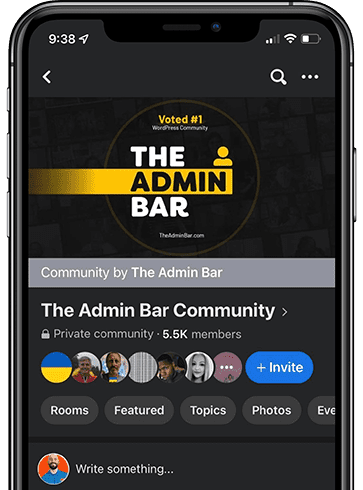Does your discovery process sometimes feel like a waste of time?
Discovery meetings can be a tricky thing to get right. So much so, some digital agencies have completely abandoned the process, opting exclusively for RFPs and relying on back-and-forth emails to guide the early stages of client relationships.
Even though jumping straight into the nitty gritty of client projects might sound like a great cost and time-saving measure, it tends to have the opposite effect.
Especially when it comes to website discovery, a lack of targeted research from the beginning can result in hours (if not days!) of valuable work being wasted further down the line. The discovery process also helps remove certain variables from projects and reduces the risk of project failure.
Still not convinced? I’m here to fill you in on just some of the ways a good discovery process can benefit your business and improve your client relationships long-term… it’s just a case of knowing how to leverage it!
How A Good Discovery Process Can Benefit Your Web Projects
1. Helps maximize customer buy-in
With the right framework in place, discovery meetings can significantly increase revenue for your company. This is because they provide the perfect opportunity to showcase your full capabilities as a business and prevent clients from looking elsewhere for services you could provide.
Good discovery also helps maximize the value of your client relationships by allowing you to identify and address any potential roadblocks to your project’s success. If there’s something your client is unsure about or there are any risk factors to your relationship, now is the time to address these concerns and establish confidence in your business.
With the right approach, you can communicate to your clients that you’re not just a service provider — you’re a strategic partner that can elevate their business from day one!
2. Establishes a sense of customer care
With the previous point in mind, discovery meetings also give your clients their ‘first taste’ of what it’s like to work with you. This is why in order to woo clients early, you need to come prepared!
Gartner found that customers who find supplier information helpful are three times more likely to “buy a bigger deal with less regret”. In our experience, this is usually because clients connect best with companies they feel are committed to their growth and genuinely care about their business.
To leverage this fact:
- Anticipate any major pain points your client might have by conducting research prior to your discovery meeting
- Angle your communication to incorporate a ‘we’re here to help’ style of discussion
- Ask targeted questions that allow your client to open up about any hidden challenges they’re facing (even if they don’t seem relevant to your service)
- Have details about additional packages prepped in advance in case you uncover any additional needs your agency can help with
- Be open to changing up your pricing if clients are willing to commit to more long-term relationships
3. Provides an opportunity to leverage pain points early
As soon as clients bite, it can be tempting to want to get to work as soon as possible. Especially if you’ve completed a similar project or have worked with the same type of client before, the whole ‘been there, done that’ rhetoric can be enough to lure any agency into a false sense of security.
However, even if you’re well-versed in certain project types, there’ll always be customer pain points you’ll miss without a discovery phase. As mentioned earlier, identifying pain points during discovery will not only help you shape your client relationships more effectively, it also helps you identify additional value and open up opportunities for your business.
While it’s good for your agency to be eager and want to get things done efficiently, getting things done effectively is what you should focus on from the start.
To uncover your client’s full range of pain points, ask questions relating to:
- Why their business was established and how it’s changed since then
- Your client’s short-term and long-term goals (without sounding too sales pitchy!)
- The challenges your client faces daily and the potential challenges they see in the future
- Their concerns relating to the project you’ll be working on (e.g. a tight deadline, budget concerns etc.)
4. Increases retention rates
Everyone knows that good rapport is essential to maintaining good business relationships. That said, only some realize just how much of an impact the discovery phase can have on this aspect of your business.
During the discovery process, your business can set the tone for your entire client relationship and create that elusive ‘likeability factor’ from the beginning. Bad first impressions tend to stick, so setting off on the right foot is half the battle.
To increase retention rates, the framework for your discovery process needs to:
- Provide you with the information you need to get your client’s project right the first time and keep them coming back for more
- Take your client out of the mindset of this just being a ‘one-time project’ relationship
- Validate your position as a business that is committed to helping companies grow (not just deliver a single service)
- Help you identify any ‘difficult to manage’ clients early on
5. Helps to manage client expectations
Following on from the previous point, how many clients have you struggled to manage because their expectations weren’t in line with your deliverables? With an effective framework in place for your discovery process, you can ensure that issues with client expectations are realized and resolved.
As part of improving your delivery process, try to focus on:
- Knowing which questions to ask to identify what your client expects
- Learning how to read ‘between the lines’ of client communication (particularly during early meetings, clients often don’t say what they’re really feeling)
- Understanding which follow-up questions to ask to tease out further details about what they’d like to see from your service
- Establishing values such as open communication and transparency that help your projects better align
6. Reduces scope creep
Even if the term ‘scope creep’ isn’t overly familiar to you, you’ll definitely be familiar with the process. Scope creep is when you start out thinking that a project will involve X, Y, and Z… but as time goes on, the deliverables of the project spiral out of control and end up involving A, B, and C too.
Usually associated with poor project management, the discovery phase is where scope creep first gains traction.
To reduce scope creep, your discovery process should result in you having:
- A clear definition of the project’s goals
- Documentation of all key points discussed during the meeting
- Boundaries for what your services should include
- An exact outline of what the deliverables will be
- A list of red flags (this can relate to the client, the project, of your capabilities as a business)
To fine tune your discovery process, start by changing your mindset
The great thing about the discovery process is that once you’ve found a framework that works for you, that same framework can be applied to almost any discovery meeting across all sectors.
Even though getting your discovery process right isn’t easy, it might be easier than you think! For many digital agencies, the first step to getting more from the discovery process is to simply see its true potential and value. After this, you can make your first attempt at formulating a strategy that works better for you!
At Uprise, we use a tried-and-tested discovery blueprint that we’ve now made available for anyone to use. There’s no catch! We find that this blueprint tends to drive results for anyone that uses it — so we figured it was only fair to share it!
You can download your free discovery blueprint from our website and learn more about how a good discovery process is vital to the success of your business.






